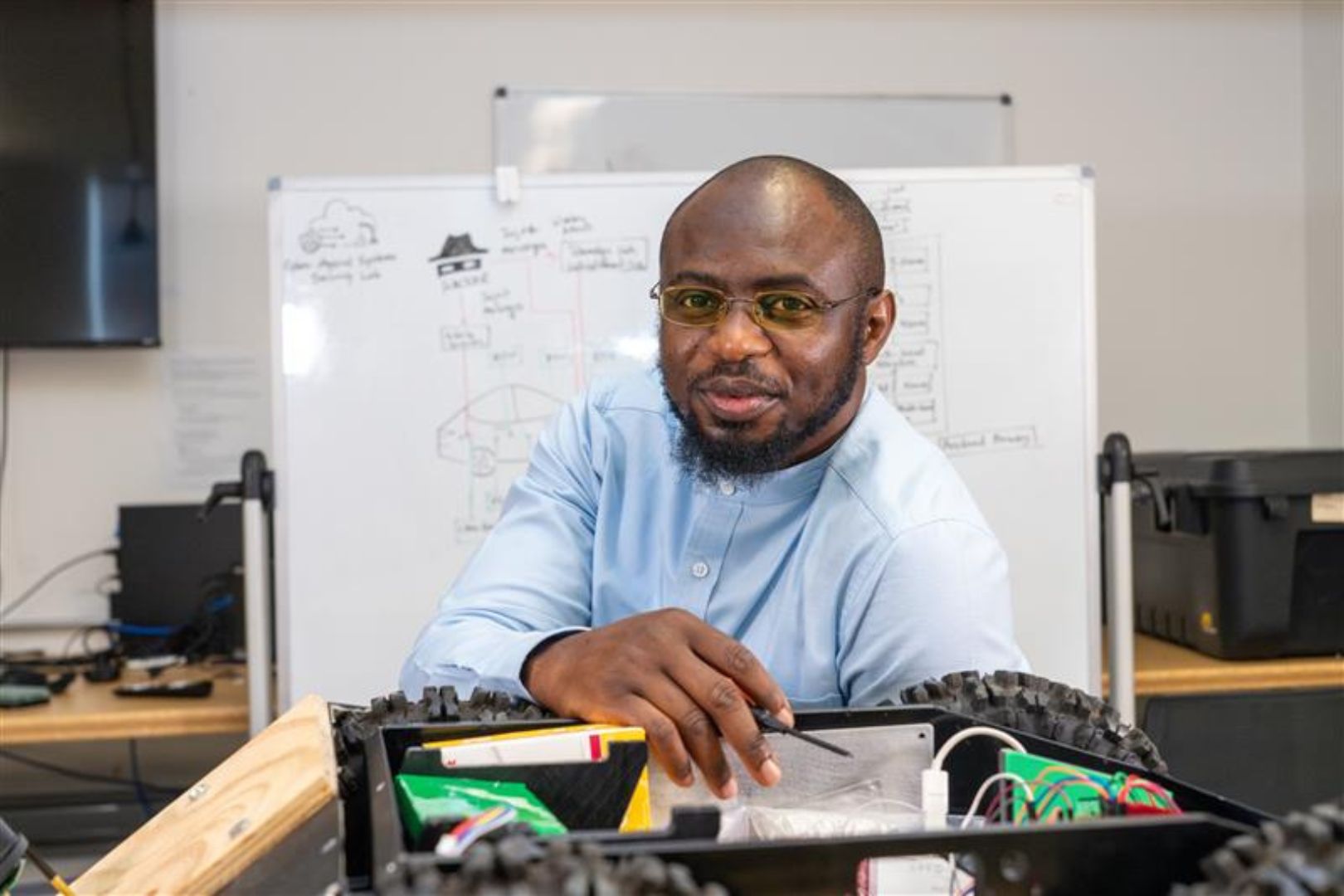UTA researcher earns NSF CAREER award for AV security

Habeeb Olufowobi, an assistant professor of computer science and engineering at The University of Texas at Arlington, has received a Faculty Early Career Development Program award from the National Science Foundation to advance his research and education initiatives.
The grant, known as CAREER, is the National Science Foundation’s most prestigious honor for early career faculty. Recipients are recognized as outstanding researchers and educators who are poised to become leaders in integrating research and education within their institutions.
The nearly $600,000 grant will support Olufowobi’s work to develop methods to protect high-level software and low-level hardware of connected autonomous vehicles (AVs) from cyber-physical attacks and misuse by hackers.
Traditionally, efforts to secure AVs have emphasized mechanical control systems—such as brakes and steering—and their communication networks, like the CAN bus. But as AVs become increasingly autonomous, they depend more on complex software integrated with hardware, broadening the attack surface and exposing systems to more sophisticated threats.
Olufowobi will design multilevel attacks to study how threats exploit the interactions between high-level autonomy functions—such as perception systems and AI/ML algorithms—and low-level functions like in-vehicle networks. His research will model how coordinated attacks spread across these interconnected layers via cyber-physical state information exchanges. He will also develop integrated dependability and security solutions to help vehicles detect, withstand and recover from such attacks.
Related: UTA engineer earns NSF CAREER award for power research
“High-level components like cameras and sensors now direct low-level operations, such as control and actuation,” Olufowobi said. “So, if the high-level systems are compromised, low-level functions can be subverted as well. My research examines the interconnectedness between these layers to understand how attacks can propagate across the vehicle stack. Our goal is to integrate security holistically throughout cyber-physical systems of AVs to prevent attacks from cascading between autonomy functions and in-vehicle networks.”
Olufowobi joined UTA in 2020. His research focuses on ensuring the security and trustworthiness of embedded and distributed systems.
“We are extremely proud of Dr. Olufowobi’s achievement,” said Hong Jiang, chair of the Computer Science and Engineering Department. “His CAREER award reflects not only his innovative contributions to cybersecurity and autonomous vehicles, but also the growing research excellence within our department. This is a well-deserved recognition, and we look forward to the continued impact of his work.”
- Jeremy Agor, College of Engineering
About The University of Texas at Arlington (UTA)
Celebrating its 130th anniversary in 2025, The University of Texas at Arlington is a growing public research university in the heart of the thriving Dallas-Fort Worth metroplex. With a student body of over 41,000, UTA is the second-largest institution in the University of Texas System, offering more than 180 undergraduate and graduate degree programs. Recognized as a Carnegie R-1 university, UTA stands among the nation’s top 5% of institutions for research activity. UTA and its 280,000 alumni generate an annual economic impact of $28.8 billion for the state. The University has received the Innovation and Economic Prosperity designation from the Association of Public and Land Grant Universities and has earned recognition for its focus on student access and success, considered key drivers to economic growth and social progress for North Texas and beyond.